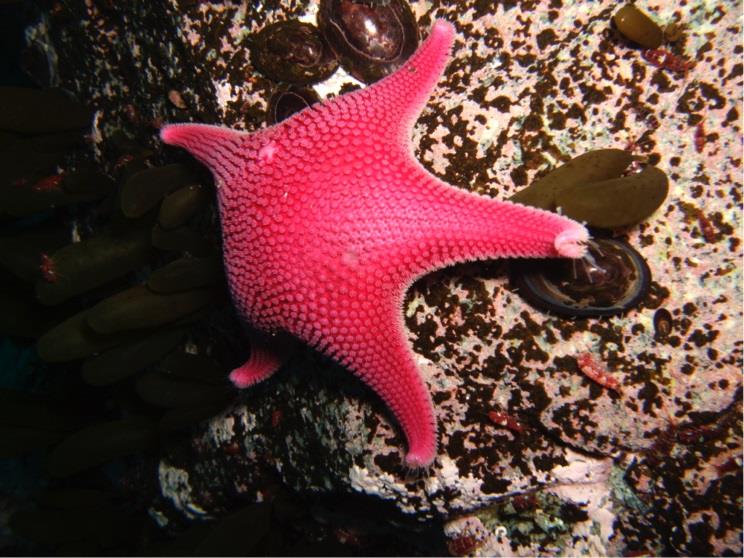
Life in the slow lane
by British Antarctic Survey 22 Jan 2018 06:37 GMT

Starfish Odontaster validus © Terri Souster
A new study from British Antarctic Survey shows how five common Antarctic marine invertebrates (animals without a backbone) use less energy to feed, grow and reproduce than their temperate and tropical relatives. The study is part of wider programme to understand how organisms might respond to future predicted climate change scenarios.
The research team examined the summer and winter metabolic rates of marine animals that live on the sea floor. The five species were the starfish Odontaster validus, the urchin Sterechinus neumayeri, the limpet Nacella concinna, the brittle star Ophionotus victoriae and the sea cucumber Heterocucumis steineni. The team discovered that food quality, rather than quantity, drives activity such as growth and reproduction. This in turn affects metabolic rate.
Reporting this week in The Journal of Polar Biology, the team describes how certain species, such as the starfish and the urchin, consume about 40% more oxygen in the summer than in the winter, other species such as the limpet and the brittle star showed no significant seasonal difference in oxygen consumption. The sea cucumber showed juveniles to consume more oxygen in summer than winter but adults vice versa.
The sea floor ecosystem in Antarctica depends almost entirely upon the spring/summer phytoplankton bloom. Many Antarctic sea floor-dwelling marine invertebrates exhibit seasonal cycles related to the extensive phytoplankton bloom, for example, growth and reproduction.
The isolation and constant cold of the marine environment in Antarctica have allowed these species to evolve some general and unique adaptations such as slow growth rates, delayed reproduction and slow development.
A dive team collected adult and juvenile specimens during the austral summer (November – April). During winter (June – October), they cut a hole in the sea ice to dive beneath the ice. Oxygen consumption measurements were taken in the station's Bonner Laboratory aquarium.
Lead author Dr Terri Souster says:
"The seasons on the Antarctic Peninsula are shifting, with changes in sea water temperature and sea ice conditions. I am extremely fortunate to have been given the opportunity to carry out research on the ecosystems of the shallow rocky coastal shores on the Antarctic Peninsula. Climate change is affecting all regions of our planet, there is an urgent need to understand the affect of these changes on marine ecosystems."
Read the paper here.